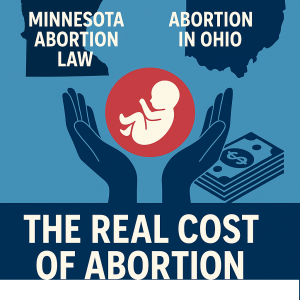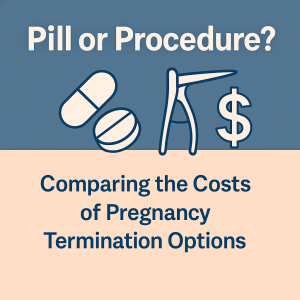Abortion laws in the United States have been a topic of intense debate, and Florida is no exception. The state has established specific regulations governing abortion procedures, balancing legal access with restrictions that have evolved over time. For individuals seeking abortion care in Florida, it’s crucial to understand the state’s laws to make informed decisions.
This article outlines the current abortion laws in Florida, including time limits, parental requirements, and how recent legal changes may impact access.
Is Abortion Legal in Florida?
Yes, abortion is legal in Florida, but the procedure is subject to significant restrictions. In recent years, Florida has passed laws that align with many other conservative states, aiming to limit access to abortion while still allowing it under certain conditions.
Key Abortion Laws in Florida
1. Time Limit on Abortions
- As of 2025, abortion is legal in Florida up to 15 weeks of pregnancy.
- This time limit was established by the 15-Week Abortion Ban signed into law in 2022.
- Abortions after 15 weeks are permitted only if:
- The life of the pregnant person is at risk.
- There is a fatal fetal anomaly.
Unlike some states, Florida does not allow exceptions for cases of rape or incest beyond the 15-week limit.
2. Parental Consent for Minors
- Florida law requires parental consent for anyone under 18 seeking an abortion.
- A minor must obtain written, notarized consent from a parent or legal guardian before the procedure can be performed.
- In cases where parental consent is not feasible, minors can pursue a judicial bypass by appearing before a judge who may approve the procedure without parental involvement.
3. Waiting Period
- Florida mandates a 24-hour waiting period between the initial consultation and the abortion procedure.
- This law requires individuals to make two visits to the provider: the first for mandatory counseling and the second for the procedure itself.
4. Provider Restrictions
- Abortions in Florida must be performed by a licensed physician.
- Advanced practice clinicians, such as nurse practitioners, are not permitted to perform abortion procedures under state law.
5. Medicaid and Public Funding
- Florida does not allow state Medicaid funds to cover abortion except in cases of rape, incest, or when the pregnant person’s life is at risk. This restriction limits access for low-income individuals seeking care.
Impact of Recent Legal Changes in Florida Abortion Laws
Florida’s abortion laws have become stricter in recent years. The 15-Week Abortion Ban replaced the previous 24-week limit, significantly reducing the timeframe during which individuals can legally access abortion services.
This law aligns Florida more closely with other states imposing bans on abortion after the first trimester. It has also led to legal challenges from organizations arguing that the law violates the state constitution’s privacy protections.
Abortion Access in Florida
Despite legal restrictions, Florida remains a critical access point for abortion care in the southeastern United States, especially for individuals traveling from states with stricter bans.
- Medication abortion, using pills such as mifepristone and misoprostol, is available for pregnancies up to 10 weeks.
- This non-surgical option is widely used and typically involves two steps: taking mifepristone to block pregnancy hormones and misoprostol to expel the pregnancy.
- For pregnancies beyond 10 weeks, surgical abortion is the primary option.
- Clinics and hospitals in Florida offer these procedures within the 15-week legal limit.

Legal Challenges and Future Outlook
Florida’s abortion laws are subject to ongoing legal and political challenges. Advocacy groups have argued that the state constitution’s privacy protections should safeguard abortion access, while others push for more restrictive measures.
Some key issues to watch include:
- Potential Trigger Laws: Should federal laws change or new rulings occur, Florida could implement stricter abortion bans.
- Ballot Initiatives: Advocacy groups may introduce measures to expand or restrict abortion access further.
The future of abortion rights in Florida will likely continue to evolve as state and federal dynamics shift.
Frequently Asked Questions About Florida Abortion Laws
- Can I get an abortion after 15 weeks in Florida?
Abortion after 15 weeks is only allowed if the pregnant person’s life is in danger or if there is a fatal fetal anomaly. Exceptions for rape or incest are not permitted under current law. - Do I need parental consent for an abortion if I’m under 18?
Yes, minors must have written parental consent. However, a judicial bypass is an option if obtaining parental consent is not possible. - What is the cost of an abortion in Florida?
The cost varies depending on the stage of pregnancy and the type of procedure. Early medication abortions may cost between $500-$700, while surgical abortions can range from $700-$1,500. Financial assistance may be available through advocacy organizations.
Florida’s abortion laws are among the more restrictive in the country, with a 15-week limit and requirements such as parental consent and waiting periods. However, abortion remains legal and accessible for those who meet the criteria outlined by state law.
It’s essential for individuals seeking abortion care to be aware of the regulations and plan accordingly. Consulting with a licensed provider or clinic can help clarify any questions and ensure compliance with the law.
As laws and regulations continue to change, staying informed is key to accessing safe and legal abortion care in Florida.







